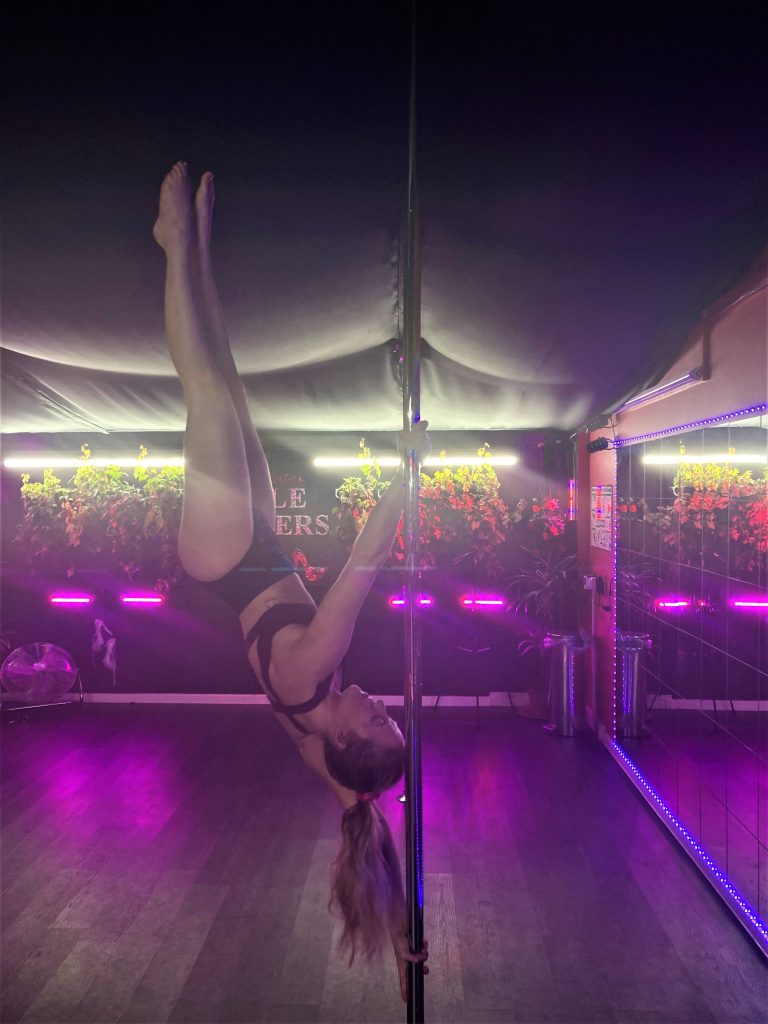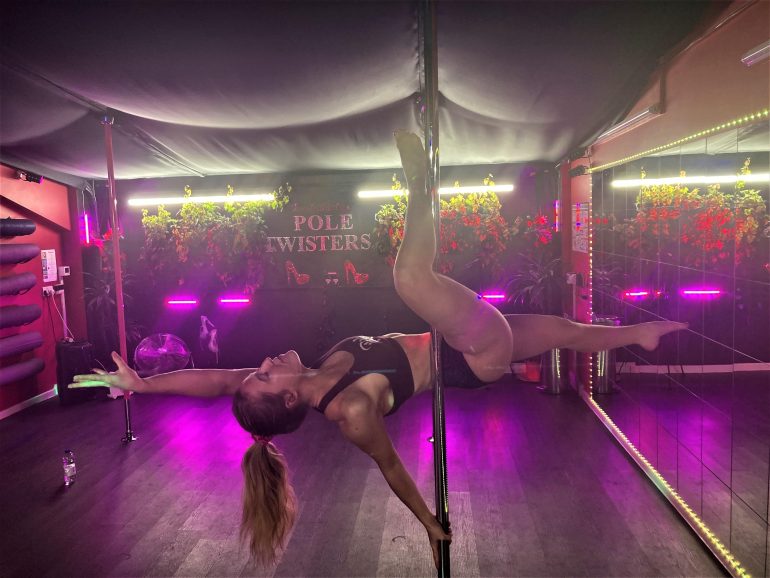People don’t appreciate the skills involved, says pole dancing instructor
STRENGTH, competition and skill are key parts of all sports. Yet when it comes to pole dancing people don’t always appreciate the fact.
Despite pole dancing being recognised as an official sport by the Global Association of International Sports Federation, it can be dismissed as an offshoot of stripping.
“Pole dancers are definitely ignored and disregarded as sportspeople,” said Lucy Bale, a pole dance instructor in Cardiff.
“People have such strong views. As a pole dancer, you either get called a stripper or a hooker. But it is fitness.”
The 25-year-old has been running classes at Pole Twisters in Splott for over a year but finds it difficult dealing with the stigma.
“At my last job, I was confronted and called a stripper by my boss after he saw a photo of me online at a pole class. I was told I was ruining the face of the company,” said Ms Bale.
“When I post photos of myself at classes, I’ve had people I thought were my friends tell me to take them down as they think it is inappropriate. People don’t realise, skin is grip – more is better.”
Ms Bale feels that stigma and abuse put people off from attending the classes.
“I’ve never been harassed on the way to our studio, but I know a lot of people have,” she said.
“Some face catcalling and whistling just for entering the studio. If they don’t react to this, they get called ugly or a stripper. I don’t know why stripper is used as a bad term. It’s not an insult.”
Pole dancing has mental and physical benefits like most sports because of the endorphins released during a workout.
“Since I started pole dancing, my anxiety has decreased massively. I used to have to take sleeping pills, but now I’m fine.
“It is great to see the difference pole dancing makes to a person. People normally start as shy and nervous. It brings you out of your shell and you can see them grow in confidence and happiness.”
Other benefits include helping tone your shoulders and improve back posture. Dancers need to use the muscles in their hands to grip onto the pole, which helps keep those with arthritis active.
The fitness classes consist of strength and conditioning training, which is shown off through dance routines.
“People don’t realise how much fitness you need. They think it is just prancing around on a pole in lingerie.

“Because there is no weight involved, people think it is easy. In reality, you have to lift your whole body weight,” said Ms Bale.
The classes are open to anyone with no gender or age restrictions.
“Even my nan has taken part and loves it – she’s in her 80s,” said Ms Bale.
Pole Twisters also offer sessions for religious customers who want to attend by providing grippy clothing that covers their skin from head-to-toe.
Ms Bale hopes that the sport will soon be seen in the Olympics. “I think this would help end some of the stigma. We need to stop being bashed. I am not a stripper, I am a sportswoman.”
In 2017, pole dancing was awarded sport status by the Olympic Committee. To become an Olympic sport, pole dancing must fulfil the following criteria:
- It must be a member of the World Anti-Doping Agency: Done.
- It must be a member of the Global Association of International Sports Federation: In the process of completion.
- It must have 50 national federations: There are currently 40.



